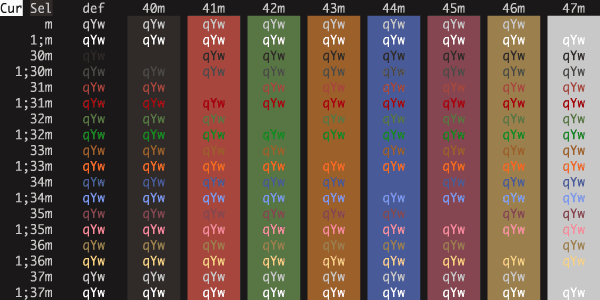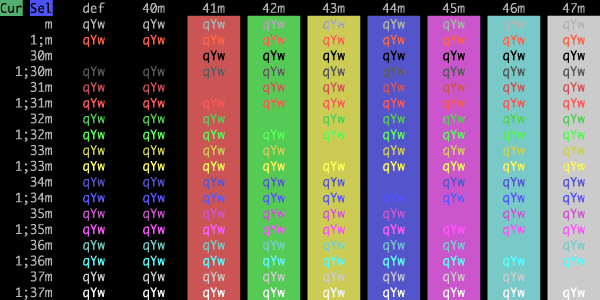
Executing commands, accessing remote SSH, downloading tools, updating the system repository, and much more cool and necessary stuff can easily be done through the terminal shell. It’s just an example configuration.png",Ĭopy the guid and paste it as the value for defaultProfile at the top.The terminal shell is definitely a handy and powerful tool for every Linux distribution. "wordDelimiters" : " only customized my Ubuntu Profile, don’t replace your guid with the one below. For now, let’s just change the layout a bit and the the color scheme. At the top you should have a link to the schema definition, where you have the entire documentation. It contains “defaultProfile”, “theme”, “profiles”, “schemes” and “keybindings” and others. It will open a text file with a JSON object inside. To customize the colors, font and keyboard bindings, you can click on Settings. If you already have such a font you’d like to use, you can skip this part.
Iterm ubuntu install#
Should look similar to the below image.īefore we proceed, let’s download and install a font that supports icons and ligatures – MesloLGS NF, download the 4 TTF files and right-click Install inside Windows Explorer. It will pick up the pre-installed Ubuntu distribution and appear under the down arrow button, next to the tabs.
Iterm ubuntu code#
It’s an open source project and you can view its source code here. It will auto-update alongside your other Windows applications, so you shouldn’t worry about it going forward. It’s meant to get out of preview in May 2020. The Windows Terminal is still in preview, as of time of writing, but it’s stable enough for the majority of use cases. Then head back to the Microsoft Store again and install Windows Terminal, or click here. Installation and customization of Windows Terminal Once you get prompted with the standard bash prompt.
Iterm ubuntu software#
The password will be used quite frequently for installing software as the super user. Once done, start it up and it will ask you to create a root account. Click the blue Install button at the top right, where Launch is located as per the screenshot below.
Iterm ubuntu Pc#
Restart your PC and head out to the Microsoft Store and install Ubuntu, or click from here. If you encounter issues with getting WSL2 running, here is Microsoft’s troubleshooting guide. Note regarding WSL2 (): Since writing this post, Microsoft released WSL2 to the general public, which offers better performance with a few caveats, if you want to enable that one, you need to also run: dism.exe /online / enable-feature /featurename:VirtualMachinePlatform /all /norestartĪfter installing Ubuntu, you have to open PowerShell again as admin and run: wsl -set-default-version 2 Open Powershell and run the following command dism.exe /online / enable-feature /featurename: Microsoft-Windows - Subsystem-Linux /all /norestart

WSL stands for Windows Subsystem for Linux, where Linux operation system calls are translated into Windows system calls, resulting in a better Linux experience.

This guide is meant for absolute beginners for setting up a Linux shell environment on Windows 10.

If you follow this guide the end result should look like the GIF I’ve captured below:

Microsoft have come a long way in the past few years with Azure and embracing Linux as the developers’ choice. The main one being that I finally built myself a desktop PC and switched away from my trustworthy 7 year-old Macbook Air. I’ve also switched to Windows as my primary development environment due to variety of reasons. Since writing Setting up Oh-my-Zsh, I’ve levelled up in terms of shell usage and customization.


 0 kommentar(er)
0 kommentar(er)
